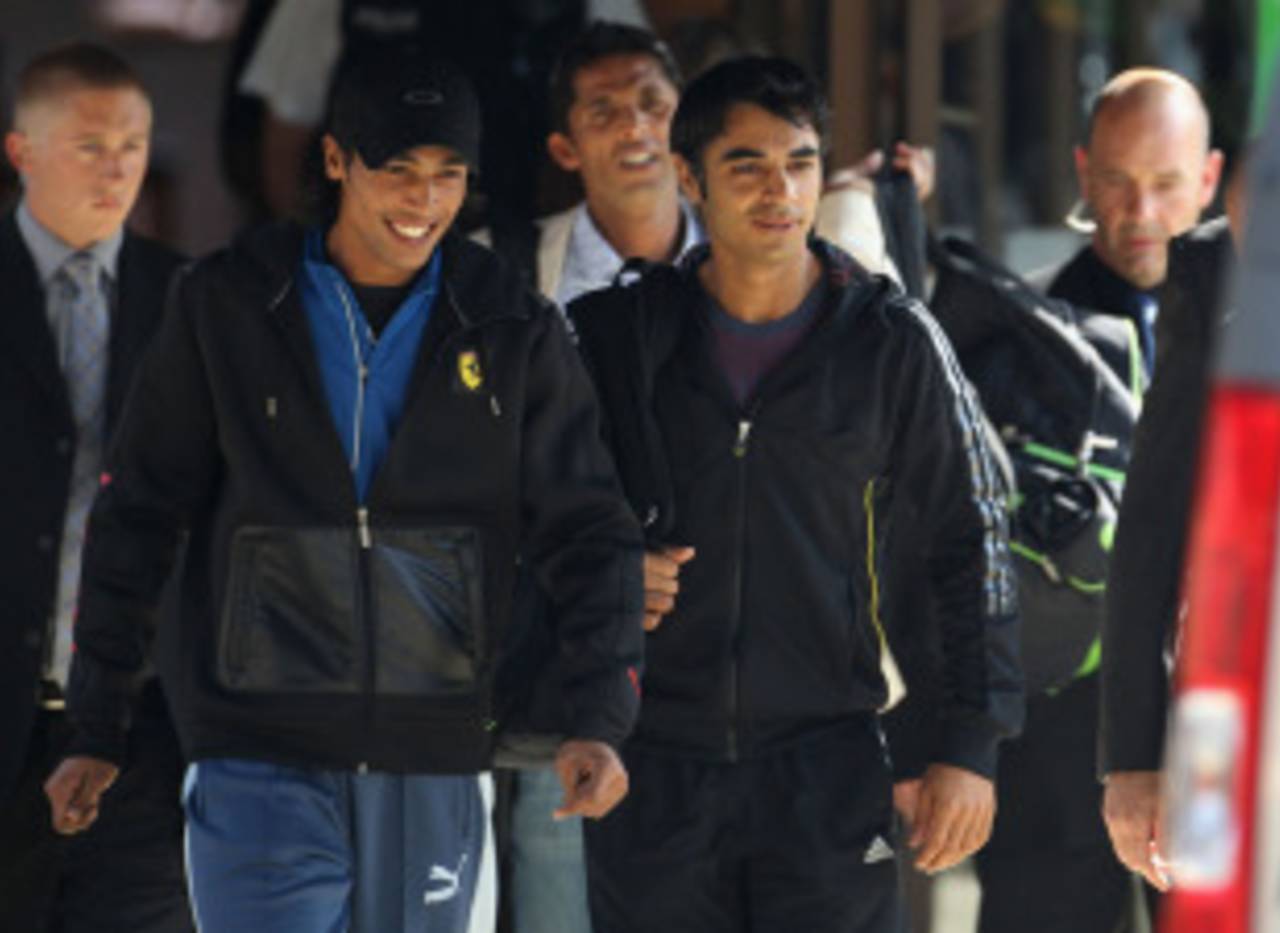Southwark Crown Court has a functional feel to it, hidden behind Tooley Street's chic shops and restaurants. No marble steps or sweeping staircases to lead you to the scene of possibly the most momentous trial in the history of cricket; a quick bag search and body scan bring you straight to a lift that deposits you outside courtroom 4, a judge's lair that damned three famous Pakistan cricketers.
I didn't know how I'd feel, a voyeur at the prosecution of Salman Butt and Mohammad Asif? There was no thrill at being party to historic events, only sadness, regret -- how did we come to this? Butt, Asif, and Mohammad Amir, the third man, were young men of dreams, hopes, and ambitions; to serve their nation and delight their countrymen on fields of cricket that might seem prosaic to most but represent the struggle of millions.
Those emotions remain with me after today's verdicts. Butt and Asif face jail terms. Amir might too, depending on his lawyer's ability to negotiate a reduced sentence in exchange for an admission of guilt. We will soon discover what will become of the men who confirmed the shameful indulgences of Pakistan cricket.
I was in Multan at Salman Butt's Test debut in 2003. Pakistan's 18-year-old left-handed opener made 12 and 37 in a dramatic Test that Pakistan saved thanks to a defiant hundred from Inzamam-ul Haq at his home ground. It was a special moment for Inzamam but equally special for Butt, who played fluently with the extra time that only a batsman of genuine class possesses. His future looked bright, an opening problem solved.
Three years later, Mohammad Asif raised his mastery of the bowler's art to a new level on another controversial tour of England. That 2006 series pitted Asif against the unofficial batting champion of the world, Kevin Pietersen. Asif made Pietersen his bunny, sending the champ back to his hutch almost the minute after an arrival at the crease. The McGrath of Sheikhupura we called him. Asif's metronomic deception was surely set to mesmerise the world for years to come?
Another three years ushered in the World Twenty20 in England. Pakistan shorn of hope, international cricket and, unusually, bowlers looked grateful to be mere participants. Also-rans became World Champions, in a dramatic tale of defiance and dazzling cricket. At the heart of the victory was Mohammad Amir, a 17-year-old fast bowler with the world at his feet and magic in his left arm, who started his career as if greatness was his birthright.
Now those dreams, hopes, and ambitions of the players and their supporters have ended in disgrace in a London courtroom. It took an English jury and a discredited British newspaper to confirm the failures of the Pakistan Cricket Board and the ICC.
There have been instances of corruption in cricket extending beyond Pakistan, and corruption in sport extends beyond cricket. Anybody who believes that we can now draw a line under spot-fixing and move on is delusional. Hansie Cronje, Mohammad Azahruddin and Marlon Samuels are just a few of the names that remind us that international cricket has a major problem. All that the London case has established is that the cricket authorities have failed to address this issue adequately despite thousands of words and millions of dollars. A fake Sheikh proved smarter than Interpol.
But that should not be used to deflect criticism from Pakistan cricket, which might not be the only culprit but it could be the most culpable. Corruption in cricket is an extension of the failures of Pakistani society. The proceedings in Southwark Crown Court paint a picture of arrogant disregard for morals and standards. The Pakistan Cricket Board is a failed institution that has declined to address the evident issues of corruption among its cricketers. The ICC has failed in its duty to protect international cricket from bookies and match-fixers. They have both missed opportunities to pursue leads and intervene.
Today's spot-fixing verdicts have provided a deterrent against future corruption, nothing more. They should force the ICC and cricket boards like the PCB to address this danger more pressingly and ruthlessly. In Pakistan's case, the issue is so complex and fault lines so many that a root and branch reform of Pakistan cricket and its governance is mandatory.
In the same week that Pakistan's great captain talked about his beloved country rediscovering its ideals, his successors are damned for corruption in an English courtroom. These young men have shamed a proud nation and an honourable sport. They have also cruelly epitomised the crisis at the heart of Pakistan: as a cricket team, a nation and a people we are full of dreams, hopes, and ambitions, but crippled by corruption. Dreams, hopes, and ambitions are better served by deeds of pride and honour.
Kamran Abbasi is an editor, writer and broadcaster. He tweets here
